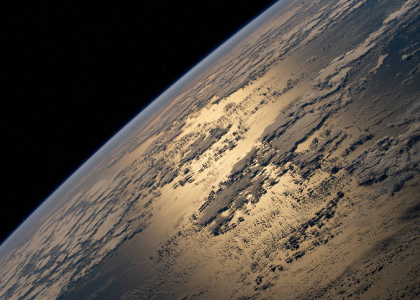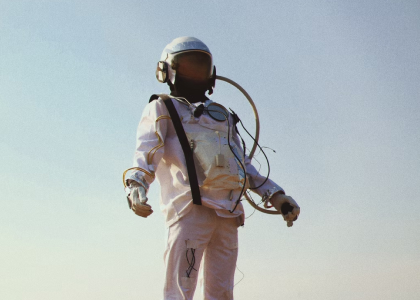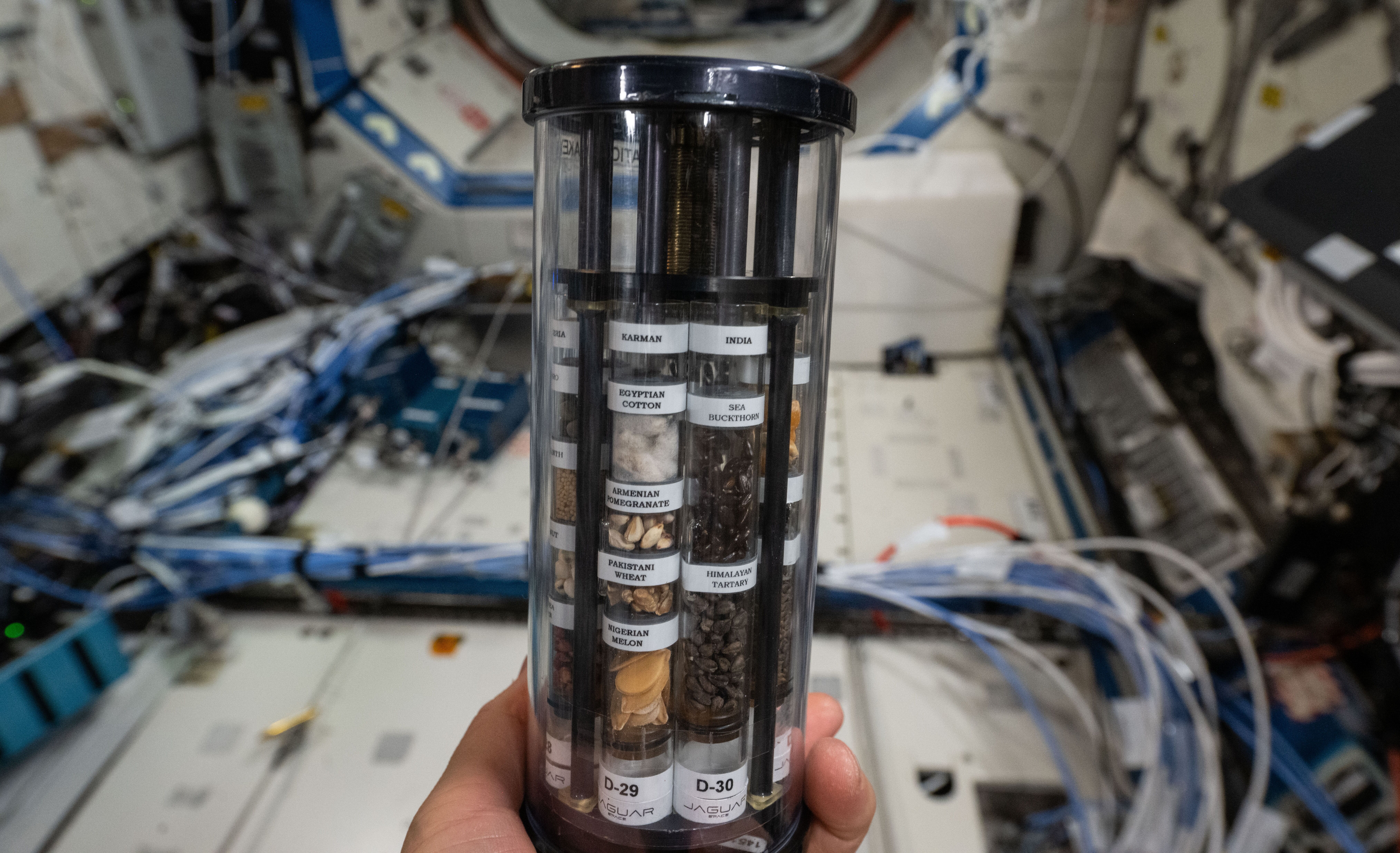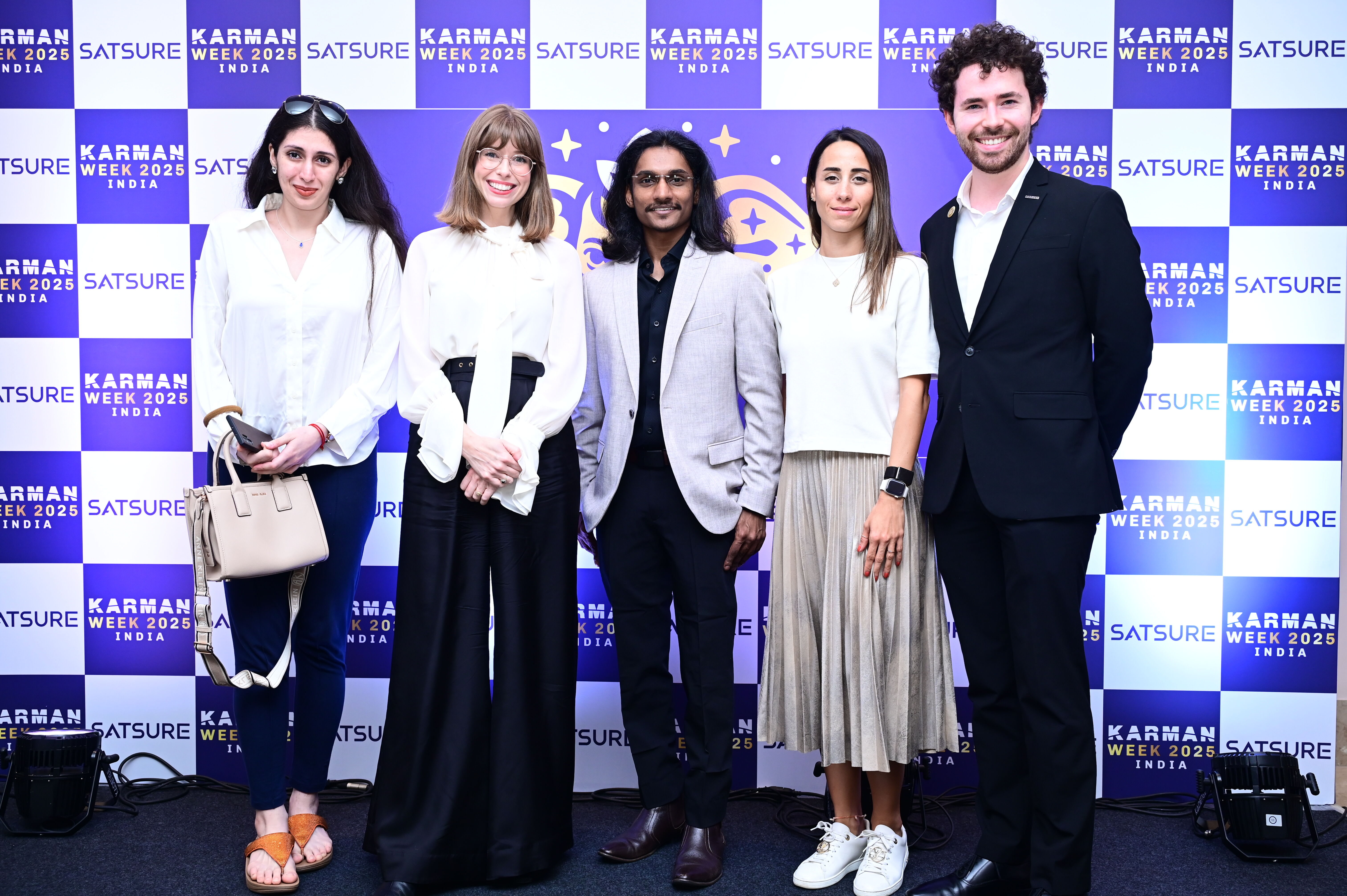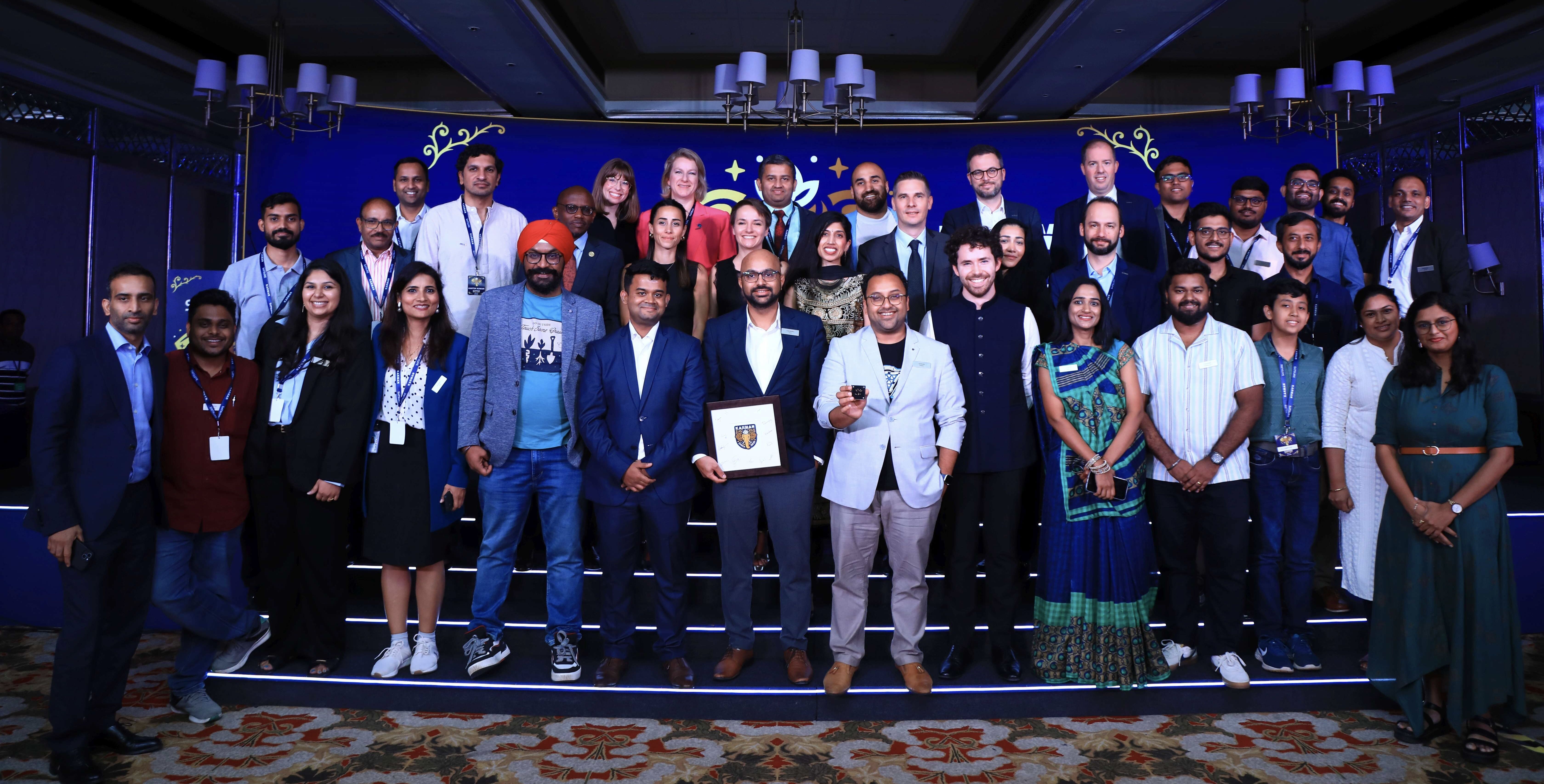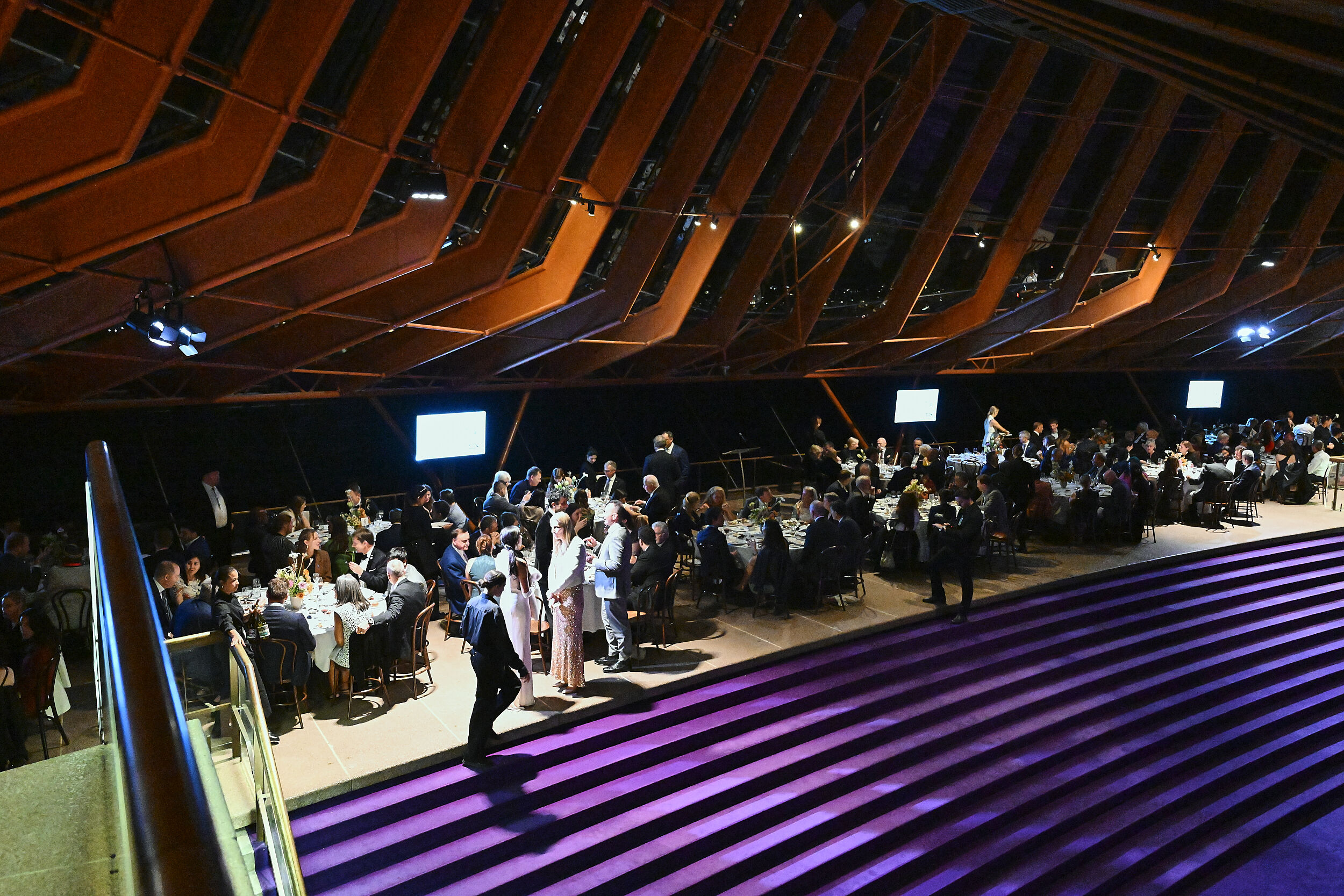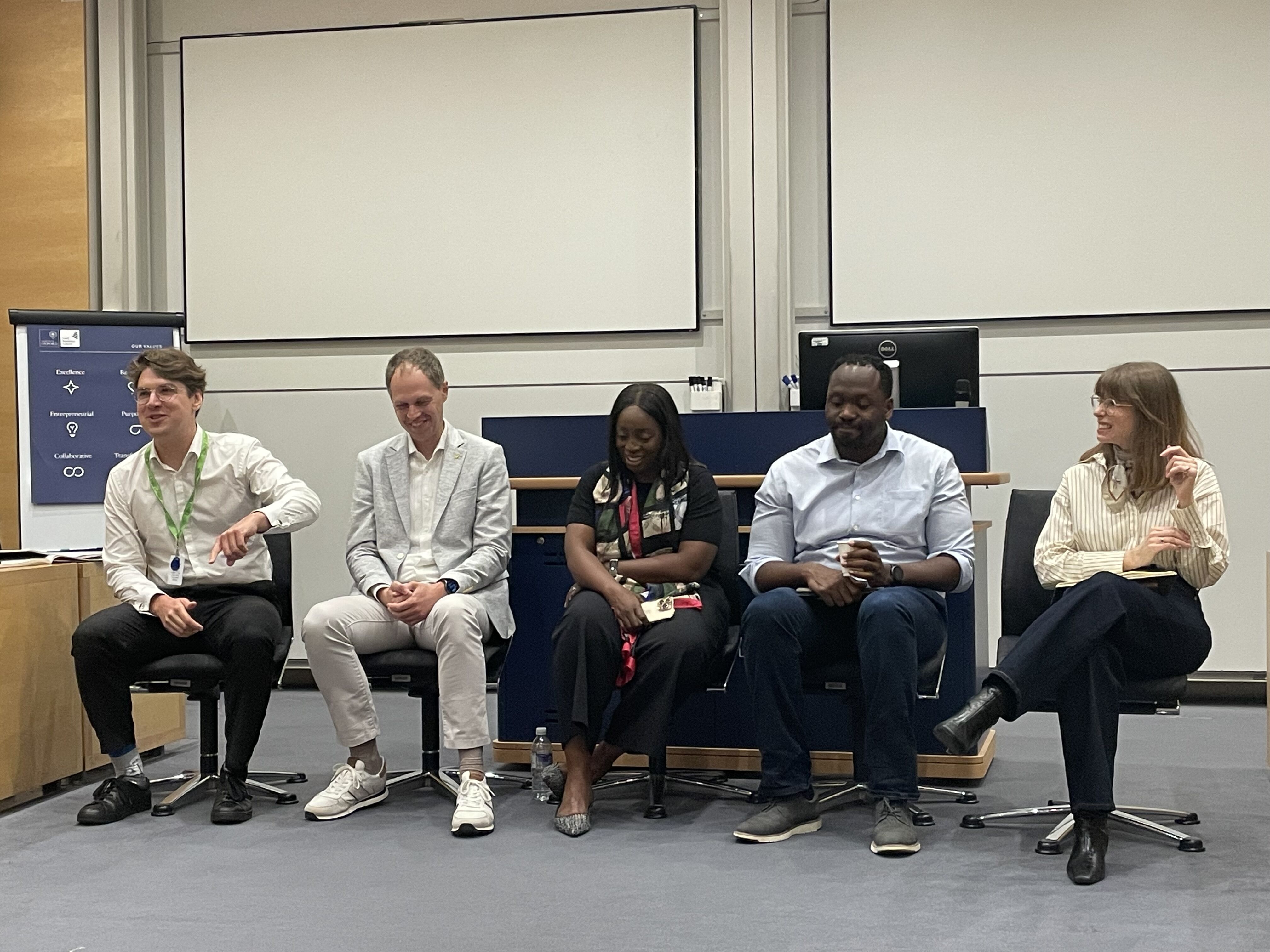By Adrian Flynn
The Karman Project Traverses the Kármán Line for a Down-to-Earth Homecoming
On August 9th, Crew-10 splashed down in the Pacific Ocean, returning from the International Space Station (ISS) with precious cargo: the seed payload of the Earth Seeds for Space partnership between The Karman Project and Jaguar Space. After orbiting the Earth over 100 times and traveling over 4 million kilometers, the seeds are now back in the hands of 2023 Karman Fellow Dr. Luis Zea and Jaguar Space, and will soon be returned to the four Karman Community members who provided them: Mahhad Nayyer, Dr. Nelly Ben Hayoun-Stépanian, Dr. Temidayo Oniosun, and Sara Sabry. Following their return, the experiments will enter the data acquisition and public engagement phases.
Each seed in the payload carries a deeply personal and cultural story that will continue to bloom far beyond its time in orbit. Mahhad Nayyer’s wheat seeds representing Pakistan mark the country’s first participation in an ISS-based research and education initiative, at long last putting a nation of over 240 million on the map of multilateral space science engagement. Dr. Nelly Ben Hayoun-Stépanian’s pomegranate seeds representing Armenia also mark a first for the country, and pave the way for a critical review of extraterrestrial landscape and extraterrestrial aesthetics as a potential for a global peace effort. Dr. Temidayo Oniosun’s Egusi seeds representing Nigeria carve space for Yoruba and Igbo heritage in the cosmos, and also reflect a personal full-circle moment as a living memory of his upbringing and cultural roots. Last but not least, Sara Sabry’s cotton representing Egypt holds promise for future research in space-based materials, particularly in applications for long-duration missions, habitats, and intravehicular garments.
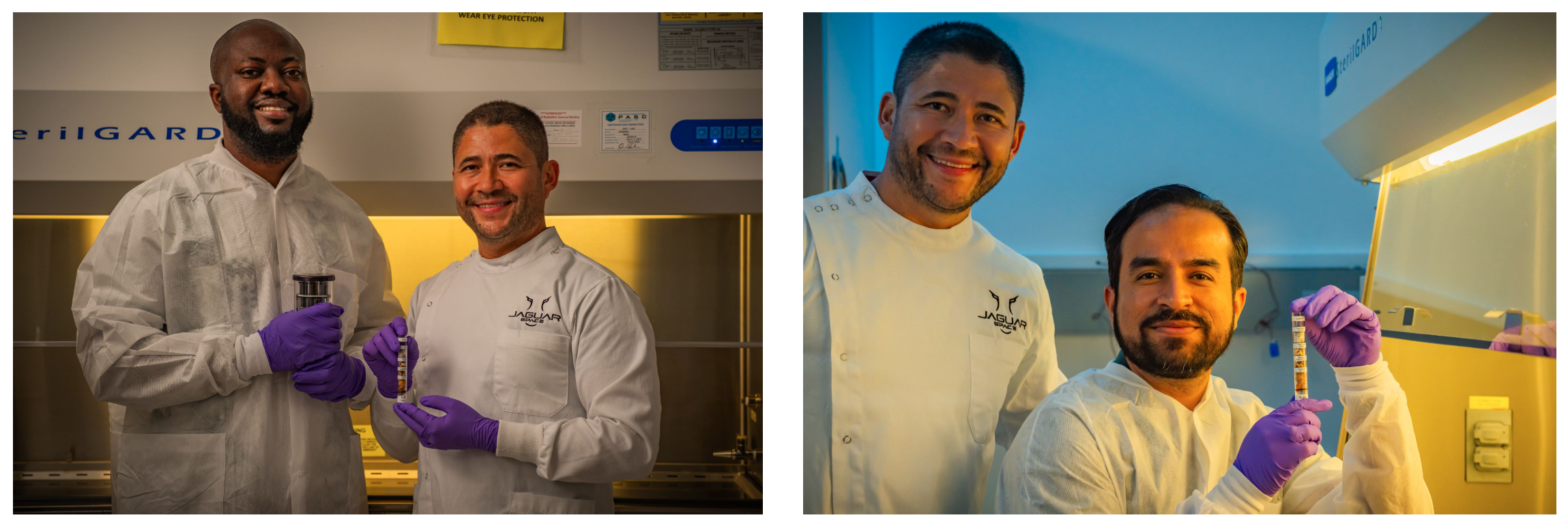 Dr. Luis Zea preparing the Karman-Jaguar Earth Seeds for Space payload for spaceflight with Dr. Temidayo Oniosun (left) and Mahhad Nayyer (right)
Dr. Luis Zea preparing the Karman-Jaguar Earth Seeds for Space payload for spaceflight with Dr. Temidayo Oniosun (left) and Mahhad Nayyer (right) 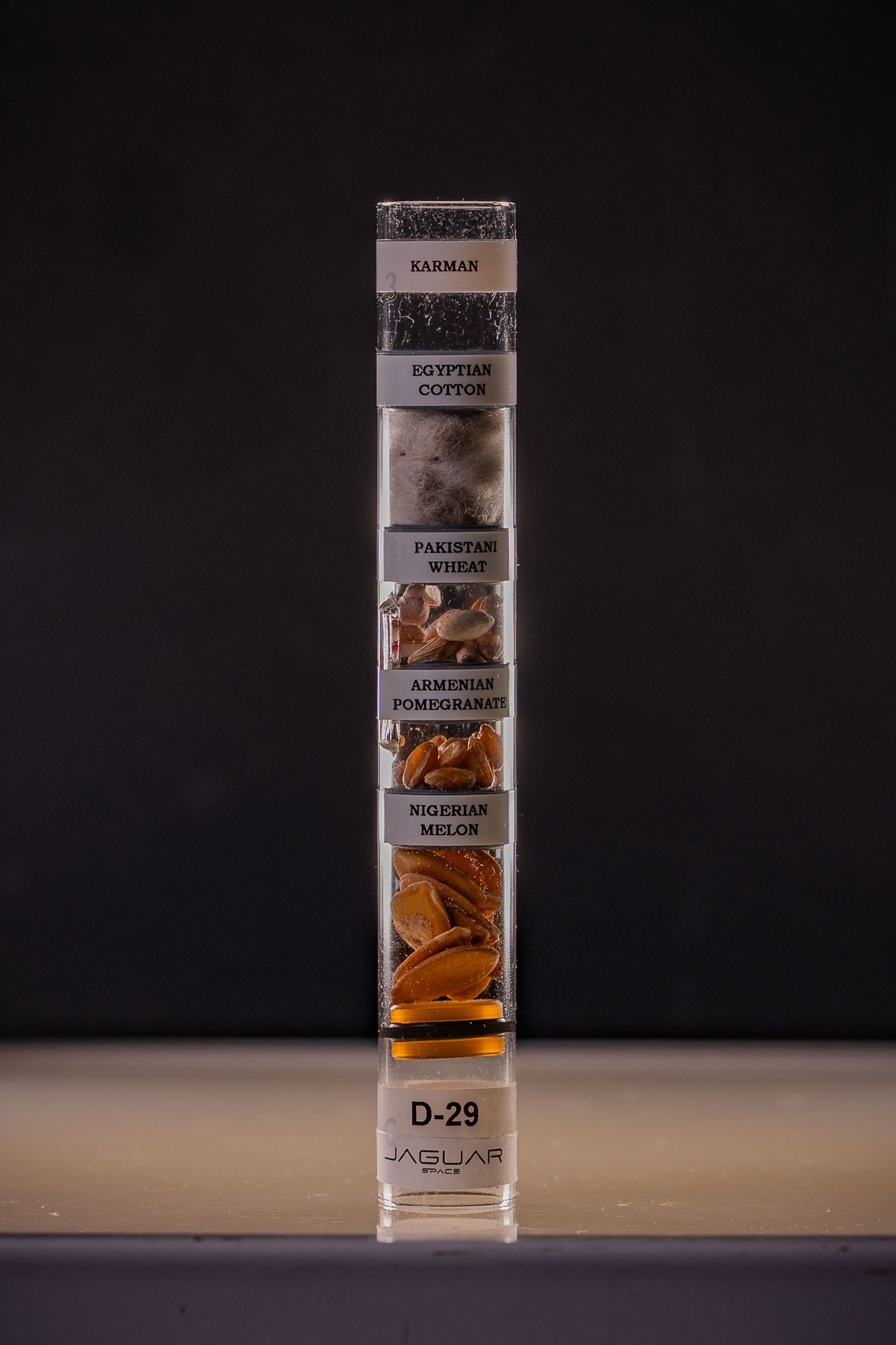 The Karman-Jaguar Earth Seeds for Space payload before spaceflight
The Karman-Jaguar Earth Seeds for Space payload before spaceflightThis mission also featured participation from other members of the Karman Community partnering with Dr. Zea and Jaguar Space. 2024 Karman Fellow Olayinka Fagbemiro, representing the Nigerian Space Agency, sent a separate payload of Nigerian indigenous seeds to the ISS for experimentation. Native mangrove seeds provided by the Maldives Space Research Organisation (MSRO), host partner for Dr. Zea’s Karman Fellowship Cohort in 2023, were also a part of the mission. In leading this bold endeavor, Dr. Zea and the Jaguar Space team have extended the cross-sectoral and convening power of The Karman Project to new frontiers. Each seed is a vessel of possibility that will germinate new ideas, research, and inspiration for generations to come.
The launch of the mission coincided with Karman-Oxford Week 2025, offering a powerful, real-time lens into international cooperation in space for course participants. On Thursday, July 31st, the classroom screen at the Saïd Business School lit up with the countdown to Crew-11’s ISS launch. Participants in the Smart Space MBA elective were riveted until the launch was scrubbed; an apt teaching moment of spaceflight’s unpredictability. On Friday, August 1st, the Karman Team and some Karman Community Members gathered at the iconic Lamb and Flag pub to mark the close of the week. This time, Florida's weather cooperated, and the successful Crew-11 launch played live on phones. Cheers erupted, mingling naturally with the lively pub atmosphere, altogether a fitting symbol of space becoming a shared global experience.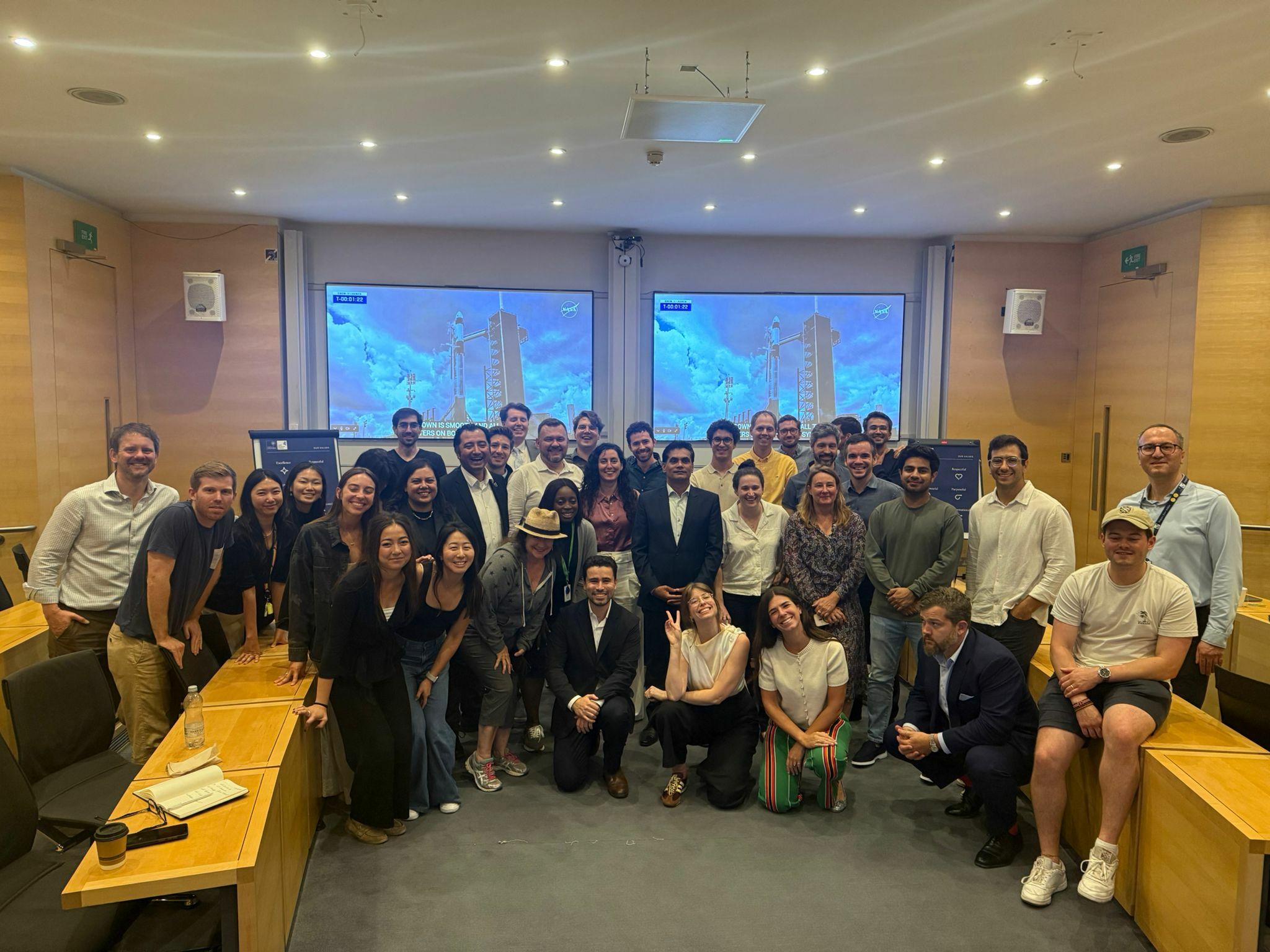 Watching the first Crew-11 launch attempt at the Saïd Business School, Oxford
Watching the first Crew-11 launch attempt at the Saïd Business School, Oxford
The Karman Project once again extends its deepest gratitude to Dr. Luis Zea and the team at Jaguar Space for leading this remarkable endeavor, which has significantly elevated the profile and possibility of bioastronautics enabling multilateral space cooperation.
Seeds are a perfect symbol of space’s evolving narrative. They carry heritage and resilience, shaped by generations of adaptation, survival, and cultural memory. When sent to space, seeds transcend being mere scientific specimens; they become a living testament to humanity’s capacity to experiment, explore, and adapt beyond Earth. By sending these particular seeds to space and back, this mission serves as a poignant reminder that culture, science, and the exploratory human spirit are highly dynamic, rooted in the Earth yet capable of floating in microgravity with a view to the stars.
As one of the Karman payload providers reflected: “For nations still finding their voice in global space dialogue, this isn’t just a mission. It’s a message.”
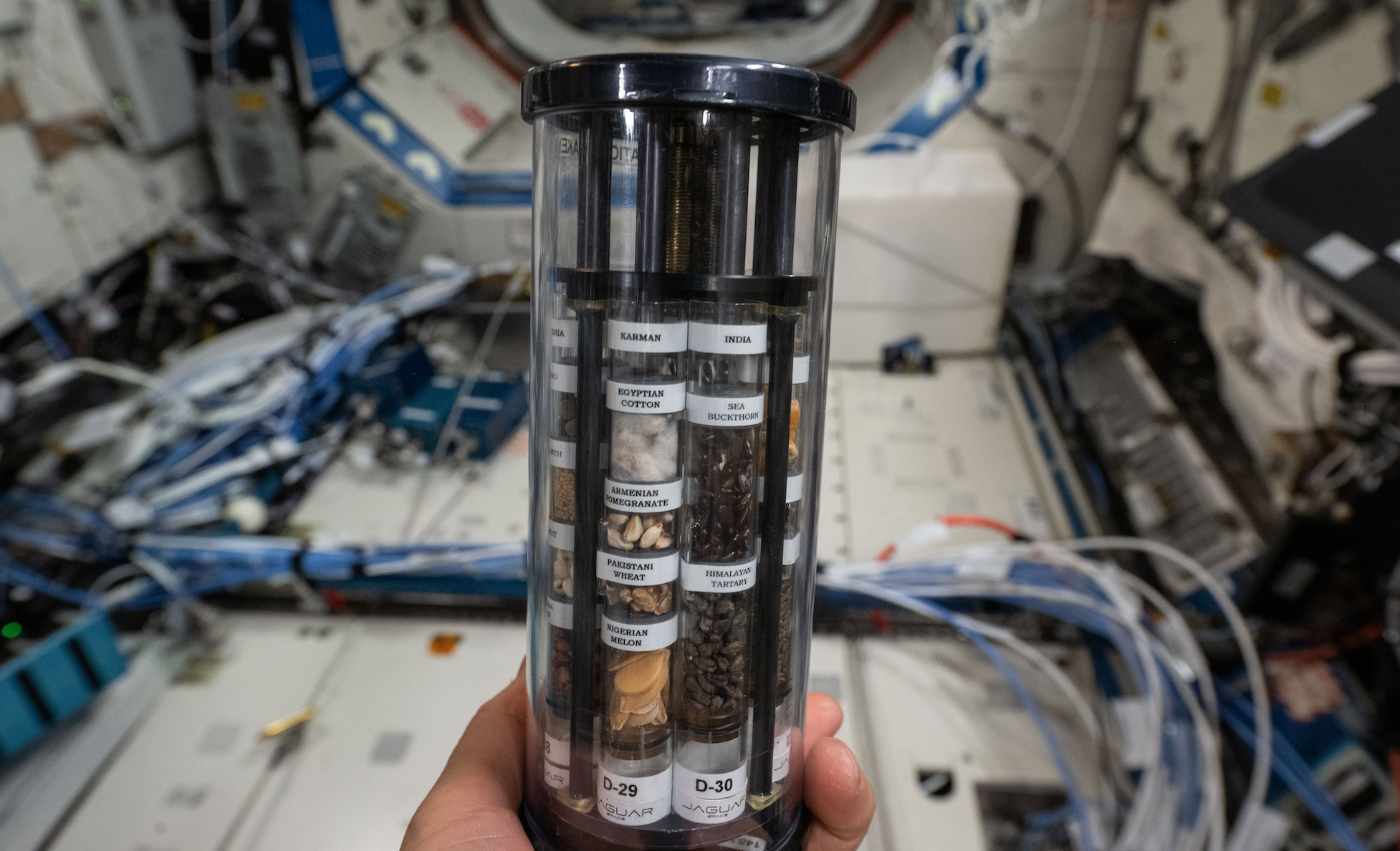 The Karman-Jaguar Earth Seeds for Space payload held by Astronaut Jonny Kim aboard the ISS
The Karman-Jaguar Earth Seeds for Space payload held by Astronaut Jonny Kim aboard the ISSPhoto Credits: NASA/Jonny Kim/BioServe/Jaguar Space
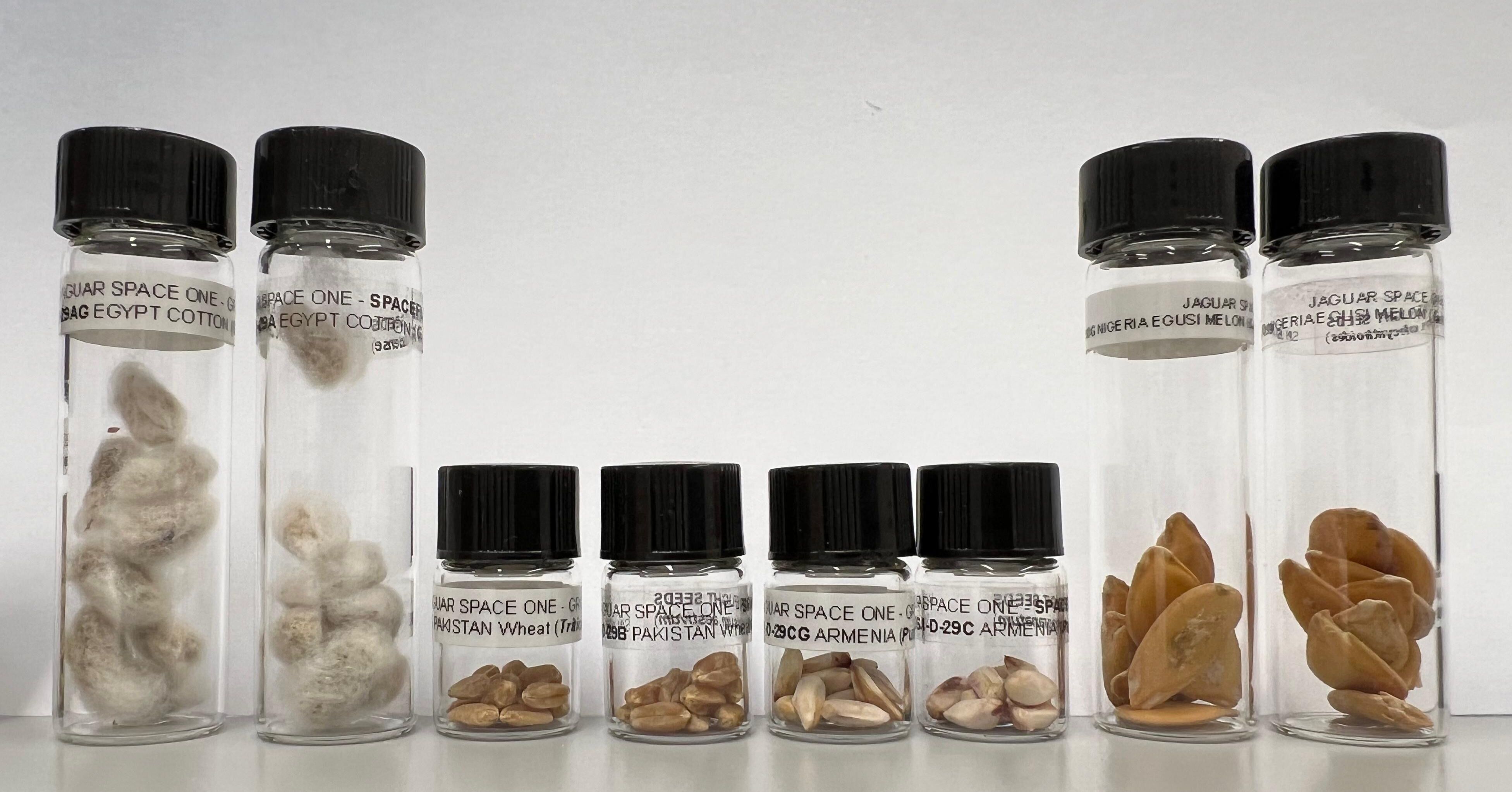 The Karman-Jaguar Earth Seeds for Space payload in individual seed-type capsules following return to Earth
The Karman-Jaguar Earth Seeds for Space payload in individual seed-type capsules following return to Earth~
Photo Credits:
Jaguar Space/Luis Zea/Ivan Castro (Guatemala)

